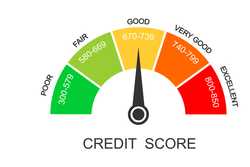7 Ways to Manage Financial Stress

Our evaluations and opinions are not influenced by our advertising relationships, but we may earn a commission from our partners’ links. This content is created by TIME Stamped, under TIME’s direction and produced in accordance with TIME’s editorial guidelines and overseen by TIME’s editorial staff. Learn more about it.
We’ve all felt financial stress in our lives at one time or another. Dealing with that financial stress can feel like a daunting task when you’re not sure where to begin.
If you’re looking for ways to manage a financially stressful situation, here are some suggestions for taking charge of your money and feeling better about your circumstances.
Start by identifying the main sources of money stress. Some common sources of financial stress include:
When you understand the main sources of your financial stress, you’ll be able to better tackle the problem. List out your main stressors so you can brainstorm ways to start addressing those items.
Set aside time two or three times a year to review and revise your list. As you consciously tackle your biggest money stressors, you’re more likely to make positive progress.
Just having a plan can help reduce your stress.
The first thing you’ll want to do is figure out what your net income is. If you only have one full-time job, you can just look at your paycheck to figure out how much you take home each pay period. If you have a side gig, or a job with inconsistent hours, try averaging out how much you made over the last year or three months.
Next, you’ll want to review or track your spending to see where your money is going. Figure out which of those expenses are absolutely necessary, and which can be cut down.
Your budget should reflect what matters most to you and cut back on the items that aren’t as important. By ranking your spending and seeing exactly where the money has been going, you can make different choices.
Use a budget to understand when you have money coming in, as well as knowing when your bills are due. With the help of a budget, you can set up a system that keeps you on track with your spending and saving goals while potentially reducing your stress levels. By integrating Simplifi, a budgeting software, into your budgeting system, you can streamline your financial planning process, achieve your spending and saving goals more efficiently, and alleviate stress related to money management.
Setting aside money to handle emergencies can offer peace of mind. Your emergency fund can potentially help you cover a new set of tires for your car or replace a small appliance. Begin by starting small. A few dollars a week can start to build, and as your finances improve, you can increase how much you add to the emergency fund.
Consider keeping your emergency fund in a high-yield savings account (HYSA) with a bank like Quontic that will provide you with a 4.25% APY* on your savings**, an APY over 11 times higher than the national average based on data from the FDIC. Just starting an emergency fund can reduce your reliance on debt when an unexpected expense comes up. And it can help you feel a little less money-related stress.
While looking for ways to cut back can help reduce your regular expenses can help relieve some of your financial stress, sometimes extra income can help. Consider asking for a raise at work or picking up extra shifts.
If you have the time you might be able to benefit from income as part of the gig economy. You can earn extra money as a DoorDash Driver or Instacart shopper. Side hustles like dog walking or babysitting can also bring in additional cash. That cash can be used to pay down some of your debt or beef up your emergency fund. With a little extra money in your pocket, you might see less financial stress as you move forward with your goals.
If you can’t remember when you’re supposed to pay your bills and consistently get late fees, that can be a source of stress. Automation can help you.
For example, you can set up bill pay to automatically handle your utility and insurance bills. That way, if life becomes hectic or you’re out of town, you know that your bills will be paid. Many credit card issuers allow you to set up an automatic monthly or weekly payment. That way, you know that your minimum payment will be covered. You might make additional debt payments throughout the month, but knowing you’re up-to-date with the required minimum can help you avoid unnecessary fees.
Automation can also help you save. Instead of trying to remember to move money into your emergency fund, set up an automatic transfer. If your employer offers automatic retirement account contributions, take advantage of those. That way, the money comes out of your paycheck and you’re automatically building wealth for the future.
By using Cash App for automatic payments, you can simplify your bill payment process and avoid late fees, while also ensuring that your savings goals are met through automated transfers to your emergency fund or retirement account.
Knowing that your money is working on your behalf without you needing to think about it can provide peace of mind and reduce some of your stress.
Sometimes, financial stress is related to communicating with a partner. Perhaps you don’t talk about major purchases, or you haven’t aligned on your money goals. Not talking about money can add to existing financial stress, even if it’s not the direct cause of the concern.
Learn healthy communication styles and try to set aside time to sit down with your partner to discuss finances. Plan ahead so that you’re both as rested as possible, and in a good space to discuss financial issues. Sometimes money provokes strong emotions during discussions, so being as comfortable as possible is a big part of keeping things as amicable as possible.
Don’t assume you have to do this on your own. Sometimes getting an outside view can help you better identify areas where you can improve. A financial professional is trained to provide planning services and advice. With help from someone else, you can create an effective plan to save for your most important goals and pay down debt.
A service like SmartAsset can match you with a professional that matches your needs. If you have someone in your corner and know you’re making good decisions, you might see a reduction in the amount of financial stress you feel.
*Interest Rates Current as of April 4, 2023.
**Limit of 6 withdrawals per statement cycle. APY means Annual Percentage Yield.
The information presented here is created by TIME Stamped and overseen by TIME editorial staff. To learn more, see our About Us page.



